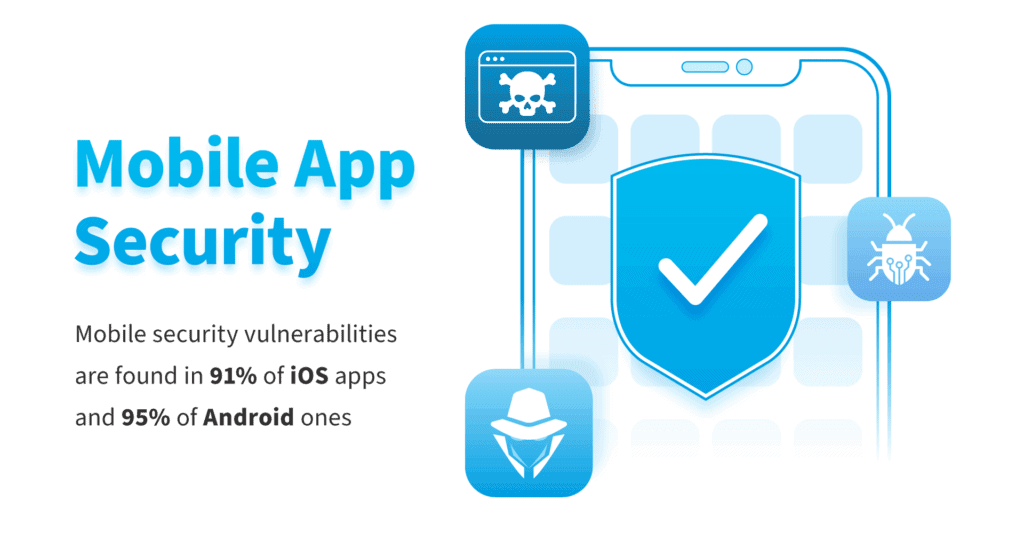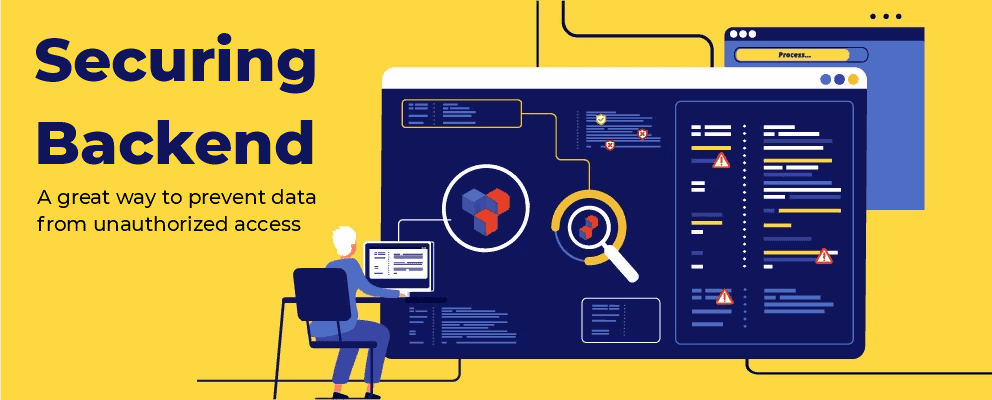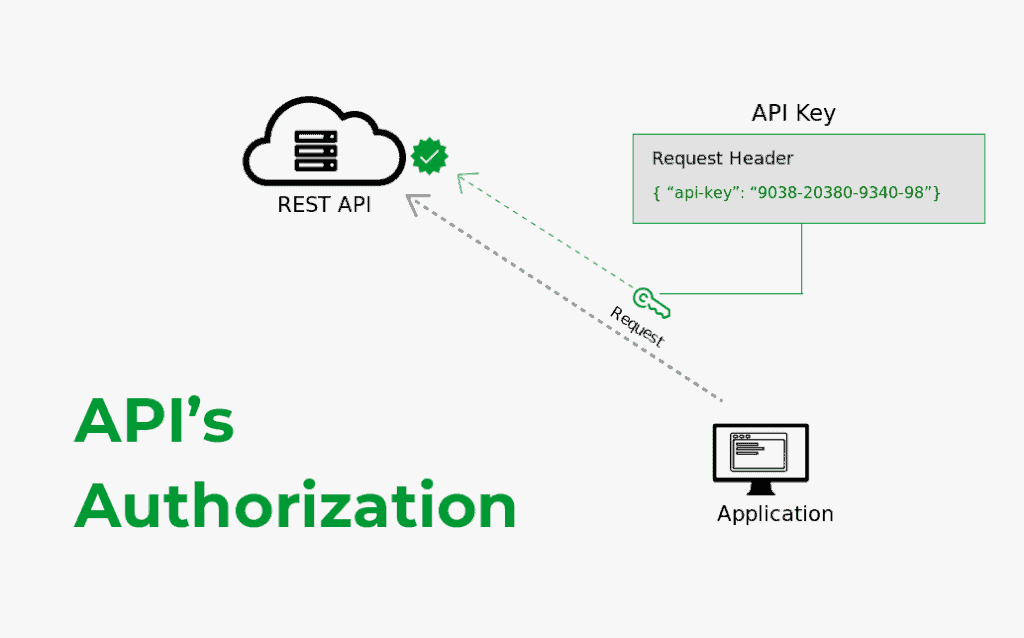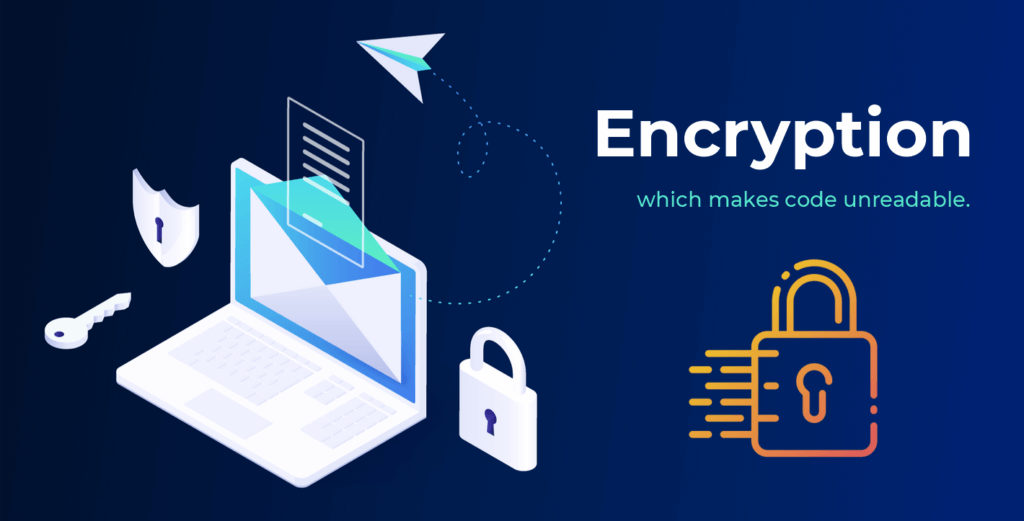Ways to Avoid Security Issues in App Development
With the rapid growth of the mobile app industry, worldwide corporations and organizations are embracing this technology to improve client communications and staff efficiency. Even firms that have never utilized apps before are now venturing into this realm. Mobile apps are becoming a must-have option for any business. Most crucially, smartphone applications have become an integral part of everyone’s lives, with some even being used to communicate sensitive data. Henceforth security issues are needed to be taken seriously.
What is mobile app security and why do we need it?
Before we go into the security challenges, let us first grasp the relevance of mobile app security. The technique by which developers assure the prevention of digital fraud is known as mobile app security. By failing to improve the security of mobile applications, hackers gain access to sensitive information about the company and its users.

Developers must be aware of potential difficulties and thoroughly educated on how to avoid them. Any compromise in mobile security may result in a corporation losing millions of dollars. It also leads to identity theft and harassment for the users.
Read more: Mobile Device Testing – Types & Differences in them
Ways needed to be taken into consideration for building a complete secured mobile app
Secure the backend

Most mobile applications utilize client-server architecture. To protect against malicious attacks on backend servers, security measures must be in place. The majority of developers believe that only apps that have been designed to access APIs can do so. However, because API authentication and transport protocols might vary from one platform to another, you should test all your APIs in line with the mobile platform you intend to build for.
Use authorized APIs

Use only permitted APIs in your app’s code, at all times. Hackers are always given the right to use your information; for instance, they can utilize permission information caches to log in to a system. To provide the highest level of security in mobile applications, experts advise having centralized permission for the whole API.
Develop tamper detection techniques for your app
Using this technique, you can receive notifications when your code is edited or altered. Having a history of your mobile app’s code modifications is frequently necessary to prevent unscrupulous programmers from injecting dangerous code into your application. Make an effort to have triggers created for your application to maintain activity logs.
High-level authentication
Security lapses result from low-level authentication requirements. The apps should be developed so that only strong alpha-numeric passwords are accepted. Additionally, it is preferable to make changing passwords regularly a requirement for users. You may increase security for very sensitive apps by utilizing fingerprint or retina scan biometric authentication. The suggested approach to prevent security breaches would be to encourage users to confirm authentication.
Read more: Full-Stack Development and the Impact of Cloud Computing
Provide latest privileges
For the security of your app code, the least privilege concept is frequently required. It is ideal to restrict access to the code to only those who are supposed to have it; everyone else should not have it, keeping it at a minimum. Keep the network as small as you can.
Use the latest cryptography techniques

Even the most well-known cryptographic algorithms, such as MD5 and SHA1, sometimes fail to match the rising security standards. As a result, it’s critical to stay current on security algorithms and employ cutting-edge encryption techniques like AES with 512-bit encryption, 256-bit encryption, and SHA-256 for hashing wherever practical. To guarantee impenetrable protection, you should also undertake manual penetration testing and threat modeling on your apps before they go online.
Have proper session management
Given that sessions on mobile devices are typically longer than those on desktops, session handling is a crucial component of app development that requires particular consideration. Therefore, session management should be carried out to ensure security if devices are stolen or lost, and it should be done so using tokens rather than IDs. To secure the data of lost devices, the app should also have the capability of remote wipe off and log off.
Secure data-in-transit
The transmission of sensitive data from the client to the server must be secured against data theft and privacy breaches. Use of either an SSL or VPN tunnel, which guarantees that user data is safeguarded with stringent security procedures, is highly advised.
Secure code encryption
Mobile malware can easily trace the defects and vulnerabilities inside the source code and design of a native mobile app because the majority of the code is on the client side. Attackers frequently use reverse engineering to repack well-known programs into rogue ones.

These kinds of threats might harm your company’s reputation. When creating an app, developers should exercise caution and incorporate resources for identifying and resolving security flaws. Application developers need to make sure their programs are secure enough to fend against hacking and reverse engineering attempts. The best approach to protect your application from these assaults is to encrypt the source code, which makes it unreadable.
Read more: Top 9 Backend Frameworks for Web App Development in 2023
Be careful while using libraries
The development of mobile app code frequently requires the use of third-party libraries. Don’t rely on any libraries while creating apps because most of them are insecure. Try to test the code whenever you utilize a variety of libraries. The attackers may be able to use malicious code and cause the system to crash thanks to the library’s weaknesses.
Test repeatedly
To safeguard your application, one fairly easy way is to test it periodically for new modifications. Security elements change often, therefore it’s important to be up to speed with the latest security trends.
Read more: The Benefits and Challenges of Building A SaaS Startup
Sum-up
It is challenging to be aware of every security risk. As technology advances, there are new threats that appear every day. The hazards described in the guide, however, are some of the more common ones that can affect developers.
A security lapse will have a significant impact on their consumer base, income, and brand reputation. Due to the abundance of apps, customers will look for security and switch to firms that provide it.
These are some of the best practices that a mobile app developer should adhere to create a fully secure and tough-to-crack application. In recent years, cyber security has shown its value, and clients are increasingly looking for more secure applications on which to rely.
Customers would choose safe apps to protect the privacy of their data over other mobile applications shortly, making security one of the differentiating and competing factors in the app business.
Amplework Software Pvt. Ltd is the firm to choose if you’re thinking about employing a seasoned mobile app development business that guarantees great security. Amplework creates customized apps with totally safe solutions. To learn more about our mobile app development service, get in touch with us.


 sales@amplework.com
sales@amplework.com
 (+91) 9636-962-228
(+91) 9636-962-228





